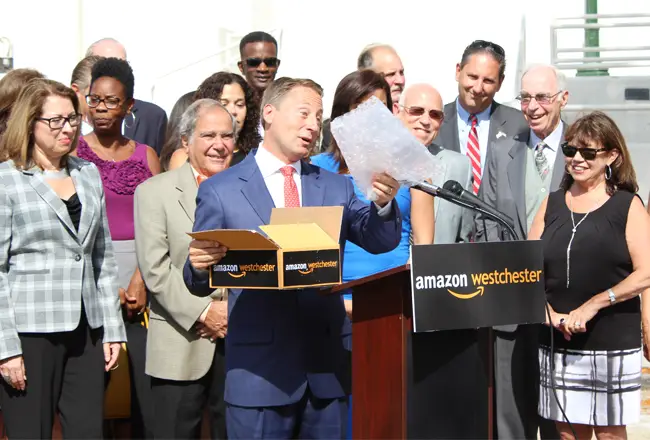IBM and its former chief information officer, Jeff S. Smith, have reached a settlement over accusations that Smith leaked trade secrets about the firm”™s Project Genesis cloud computing system to arch rival Amazon Web Services.

Courtesy Twitter
U.S. District Judge Cathy Seibel signed off on the agreement and dismissed the lawsuit on Sept. 22 in federal court in White Plains.
The terms of the settlement were not disclosed and lawyers for both sides have not responded to requests for comment.
Armonk-based International Business Machines Corp. sued Smith on Aug. 1, accusing him of violating a noncompete agreement, misappropriating trade secrets and breaching his fiduciary duty for accepting an executive position at Amazon. IBM demanded that he repay $1.7 million in stock bonuses.
Smith vigorously denied the allegations.
Seibel issued a temporary restraining order, barring Smith, of Ridgefield, Connecticut, from starting work at Amazon on Aug. 7. He was ordered not to solicit customers, recruit former colleagues or disclose confidential information. She later allowed Smith to begin employee training at Amazon in a “listen and learn mode only,” while the adversaries litigated the case.
IBM described its version of events in a heavily redacted, proposed findings of fact submitted to the court on Aug. 29.
Smith resigned in May to work for Amazon. As one of the highest-ranking executives for three years, he was privy to confidential information about IBM”™s next generation cloud infrastructure product, code-named Project Genesis.
IBM considers Amazon one of its chief competitors in cloud computing.
For three years, IBM claimed, Smith carried on a secret email correspondence with Andrew Jassy, CEO of Amazon Web Services.
Smith allegedly disclosed discussions by IBM senior management, shared company emails, identified client opportunities, denigrated its cloud products and services and disparaged senior management.
Last November Smith allegedly declared to Jassy his intention to quit IBM and to consider a high-level position at Amazon. Yet, IBM claims, Smith continued to participate in strategy sessions about competing against Amazon and requested a copy of IBM”™s latest plans for its yet-to-be-released cloud infrastructure product.
Smith was not a trustworthy guardian of trade secrets, IBM argued, even before Amazon hired him.
If he is allowed to join Jassy in the executive suite before his noncompete agreement ends next May, IBM declared, “there is no reason to believe or trust that discussions about IBM”™s current and future and still secret cloud will not continue.”
Smith”™s attorneys presented a very different account of his actions, in a lightly redacted, findings of fact.
“IBM”™s trade secret claims have collapsed into a mix of factual misrepresentation and hyperbole,” Smith”™s attorneys said.
“Smith may have been candid, rude, or perhaps even unprofessional in how he described IBM”™s leadership,” they argued, “but he never revealed anything remotely close to a trade secret.”
They claim that evidence and testimony presented to the court confirm that Smith did not share confidential information with Jassy, he followed company protocol when he returned his electronic devices and he will have no role at Amazon in designing cloud infrastructure.
IBM”™s “so-called trade secrets,” according to Smith”™s lawyers, have no value at Amazon. Smith knows what everyone in the marketplace is saying: “IBM would like to find a way to add cloud capacity and reduce its cost and prices to compete more effectively with AWS.”
Smith”™s lawyers describe Amazon as the cloud computing industry benchmark, followed by Microsoft and Alphabet. They describe IBM”™s position in the $264 billion a year market as an “aspiration.”
“IBM, a latecomer to the cloud computing market, does not offer anywhere near the breadth and scope of cloud offerings” as Amazon, Smith’s lawyers said.
IBM”™s lawsuit is not about protecting trade secrets, Smith claims. It is about restraining competition and punishing him for being critical of IBM.
In dismissing the case, Seibel retained jurisdiction for enforcing the settlement agreement.






















